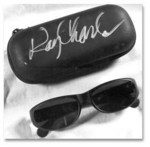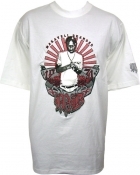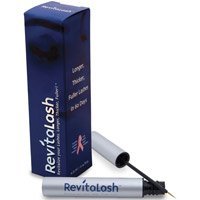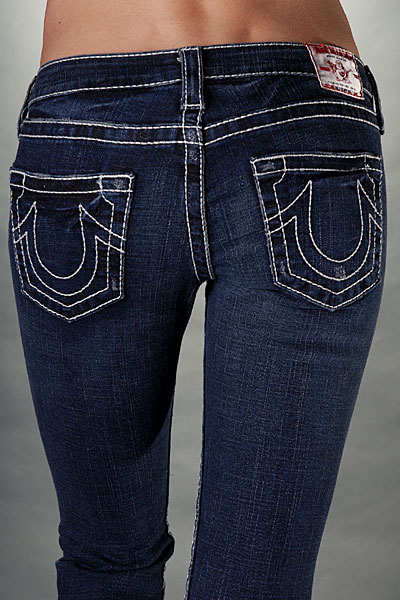Los Angeles, CA – Trademark lawyers for entertainer and musician Ray Charles’ estate filed a trademark infringement, Lanham Act unfair competition (15 U.S.C. §1125), and commercial appropriation of name and likeness lawsuit at the Federal District Court in Los Angeles. The complaint is filed against Ryan Corey Robinson, who is purportedly Ray Charles’ son, and Mary Ann Den Bok – an attorney – who is Mr. Robinson’s mother. The complaint alleges that Ray Charles created an estate plan that would provide his children a certain amount of cash and The Ray Charles Foundation would receive Ray Charles’ intellectual property rights, including his name, voice, likeness, image and biographical material.
 Plaintiff alleges that since Ray Charles’ death, “Defendants have used the threat of negative publicity and false public statements to attempt to extort funds from The Foundation and its licensees … Specifically, in or about September of 2006, Defendants began threatening The Foundation and licensees, purporting to be representatives of Ray Charles Legacy Corporation, LLC, an entity that did not exist. Defendants also contacted third parties and falsely claimed that the Ray Charles Legacy Corporation, LLC held all rights to the name, likeness, and the right of publicity of the late Ray Charles in an effort to obtain a commercial advantage based on those representations.” The case is titled The Ray Charles Foundation, Inc. v. Ray Charles Legacy Corporation, CV08-02810 JFW (C.D. Cal. 2008).
Plaintiff alleges that since Ray Charles’ death, “Defendants have used the threat of negative publicity and false public statements to attempt to extort funds from The Foundation and its licensees … Specifically, in or about September of 2006, Defendants began threatening The Foundation and licensees, purporting to be representatives of Ray Charles Legacy Corporation, LLC, an entity that did not exist. Defendants also contacted third parties and falsely claimed that the Ray Charles Legacy Corporation, LLC held all rights to the name, likeness, and the right of publicity of the late Ray Charles in an effort to obtain a commercial advantage based on those representations.” The case is titled The Ray Charles Foundation, Inc. v. Ray Charles Legacy Corporation, CV08-02810 JFW (C.D. Cal. 2008).
 Los Angeles Intellectual Property Trademark Attorney Blog
Los Angeles Intellectual Property Trademark Attorney Blog




 Defendant allegedly sells vehicle polishing and cleaning services that are described as “TEFLON® Polishing” and “TEFLON® Shine.” The complaint alleges that Defendant’s products do not contain genuine DuPont TEFLON® fluoropolymer. DuPont allegedly contacted the defendant and asked it to stop use of the mark, but defendant refused, thereby necessitating the lawsuit. The case is titled E.I. Du Pont De Nemours & Co. v. Tropic Shield, Inc., SACV08-00252 CJC (C.D. Cal. 2008).
Defendant allegedly sells vehicle polishing and cleaning services that are described as “TEFLON® Polishing” and “TEFLON® Shine.” The complaint alleges that Defendant’s products do not contain genuine DuPont TEFLON® fluoropolymer. DuPont allegedly contacted the defendant and asked it to stop use of the mark, but defendant refused, thereby necessitating the lawsuit. The case is titled E.I. Du Pont De Nemours & Co. v. Tropic Shield, Inc., SACV08-00252 CJC (C.D. Cal. 2008). Defendants own and operate a retail store named Rock Town, and a private investigator – acting on behalf of Plaintiffs – allegedly “purchased an unauthorized t-shirt bearing an image of Tupac Shakur and the trademark ‘Makaveli.'” Plaintiffs sent a cease and desist letter to the Defendants, to which there has been no response. Plaintiffs filed the instant lawsuit seeking monetary damages and injunctive relief. The case is titled Amaru Entertainment, Inc. v. Reza Falatoon, CV08-03317 DSF (C.D. Cal. 2008).
Defendants own and operate a retail store named Rock Town, and a private investigator – acting on behalf of Plaintiffs – allegedly “purchased an unauthorized t-shirt bearing an image of Tupac Shakur and the trademark ‘Makaveli.'” Plaintiffs sent a cease and desist letter to the Defendants, to which there has been no response. Plaintiffs filed the instant lawsuit seeking monetary damages and injunctive relief. The case is titled Amaru Entertainment, Inc. v. Reza Falatoon, CV08-03317 DSF (C.D. Cal. 2008). The complaint alleges that Defendants incorporated under the confusingly similar name of Athena Bioscience, also using it as a trademark, in addition to using the confusingly similar trademark of Athena Lash Serum. The complaint further asserts causes of action for unfair completion under Cal. Bus. & Prof. Code §17200, intentional interference with prospective economic advantage, intentional interference with contract, and declaratory relief under 28 U.S.C. §2201 as to the ownership of the trademarks. The case is titled Athena Cosmetics, Inc. v. Athena Bioscience, SACV08-0532 AG (C.D. 2008).
The complaint alleges that Defendants incorporated under the confusingly similar name of Athena Bioscience, also using it as a trademark, in addition to using the confusingly similar trademark of Athena Lash Serum. The complaint further asserts causes of action for unfair completion under Cal. Bus. & Prof. Code §17200, intentional interference with prospective economic advantage, intentional interference with contract, and declaratory relief under 28 U.S.C. §2201 as to the ownership of the trademarks. The case is titled Athena Cosmetics, Inc. v. Athena Bioscience, SACV08-0532 AG (C.D. 2008). Guru Denim owns a
Guru Denim owns a